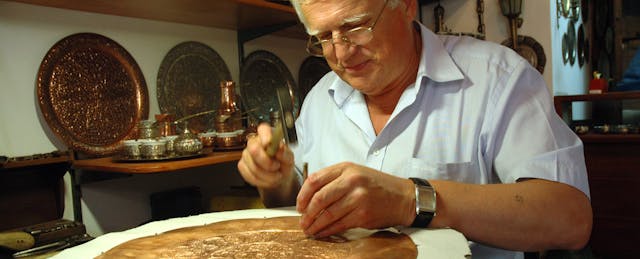“Tinker, tailor, soldier, sailor, rich man, poor man, beggar man, thief,” the old nursery rhyme goes. The tinker has quite a few associates. Maybe that’s where Tynker got the idea for all of its partnerships. It should add one more to its own nursery rhyme: the venture capitalist.
Tynker, a platform that offers visual coding classes for young children, has raised a $7.1 million Series A from Cervin Ventures, Felicis Ventures, New Ground Ventures, Reach Capital, Relay Ventures, GSV Capital, NEA, John Katzman, Founder of Noodle Companies, Deborah Quazzo, Managing Partner at GSV Advisors and others. Founded in 2012 in Mountain View, CA, Tynker claims to have reached 32 million students in 50,000 schools. It’s become a student destination during the annual Hour of Code, providing a third of the reported 253,506,039 experiences during that initiative.
Krishna Vedati, Co-founder and CEO of Tynker, describes Tynker as “a coding platform that teachers should be able to use in the classroom within five minutes of opening the page.” He said the funding will go towards developing new products and expanding to international markets, particularly China and South America. He declined to disclose the company’s valuation, saying only that it was a “fairly decent number.” According to the company’s press release, students in 200 countries already use Tynker, but, according to Vedati, tailoring Tynker to those markets presents bigger challenges.
“We’re growing throughout the US and Canada,” he said, “And we can handle that. We get a lot of inbound requests from China that we can’t fill, though. As we expand, the challenge will be to create localized content and tools for each region.”
The research and development team has been hard at work creating partnership products already. Tynker has recently partnered with Mattel to offer branded coding experiences with Hot Wheels and Monster High. The initiatives have seen some success, Vedati said: 1 million students have taken part in the Hot Wheels experiences.
New partnerships are on the horizon, as well. The company just announced a Minecraft course that will, in Vedati’s words, “turn Minecraft modding time into coding time.” In an effort to interest students in hardware, Tynker has also partnered with Parrot, which makes drones, Sphero, a programmable robot in the shape of a ball and Phillips. The goal is to allow students to modify the hardware and see physical actions associated with their code. The biggest step towards these partnerships, Vedati said, was adding the hardware coding interface to its tablet app, because students use tablets to control these robots.
The company also plans to create project-based learning tools for schools that will integrate with subjects outside of coding, such as math or language arts, as its presence in school districts grows. The company partnered with Infosys Foundation USA this year to offer its premium software to 1,000 classrooms it has deemed “high-needs.” Tynker’s presence in extracurricular programs is already strong, straddling the divide between fun and homework. Partnerships with Sylvan Learning Center and IDTech summer camps have brought the company’s programs to 800 more locations.
The company’s ultimate goals, Vedati said, are to “help kids become makers” and “grow the company and provide good results for our investors—strong revenue, growth, engagement—whether that means eventually going public or getting acquired, we couldn’t say right now.”


